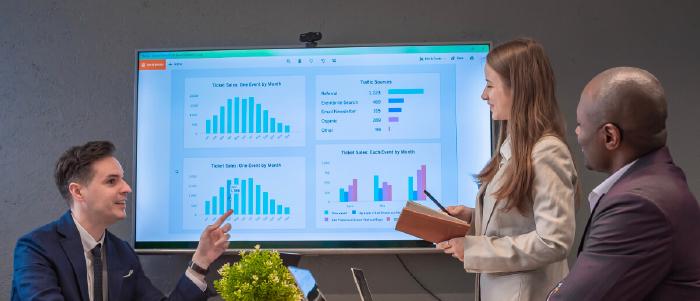
Nov 20 2024
8 min read


Office signage plays a pivotal role in a workplace’s functionality and aesthetic appeal. It guides visitors and employees through the space, reinforces brand identity, and enhances the work environment. This comprehensive guide delves into 13 essential points to consider when designing office signage, ensuring a harmonious balance between form and function.
Office digital signage refers to using electronic displays within a workplace environment to communicate information, updates, and other relevant content to employees, visitors, and clients. This technology enables real-time sharing of multimedia content, including text, images, and videos, to enhance communication, engagement, and navigation within a corporate setting.
A well-designed signage system can streamline navigation, reinforce brand presence, and enhance the overall employee and visitor experience. Here are a few such.
Understanding your audience is the first step in effective signage design. Different groups—employees, visitors, and clients—interact with your space uniquely. Incorporate signage analytics to cater to these diverse needs, enhancing efficiency and accessibility for all.
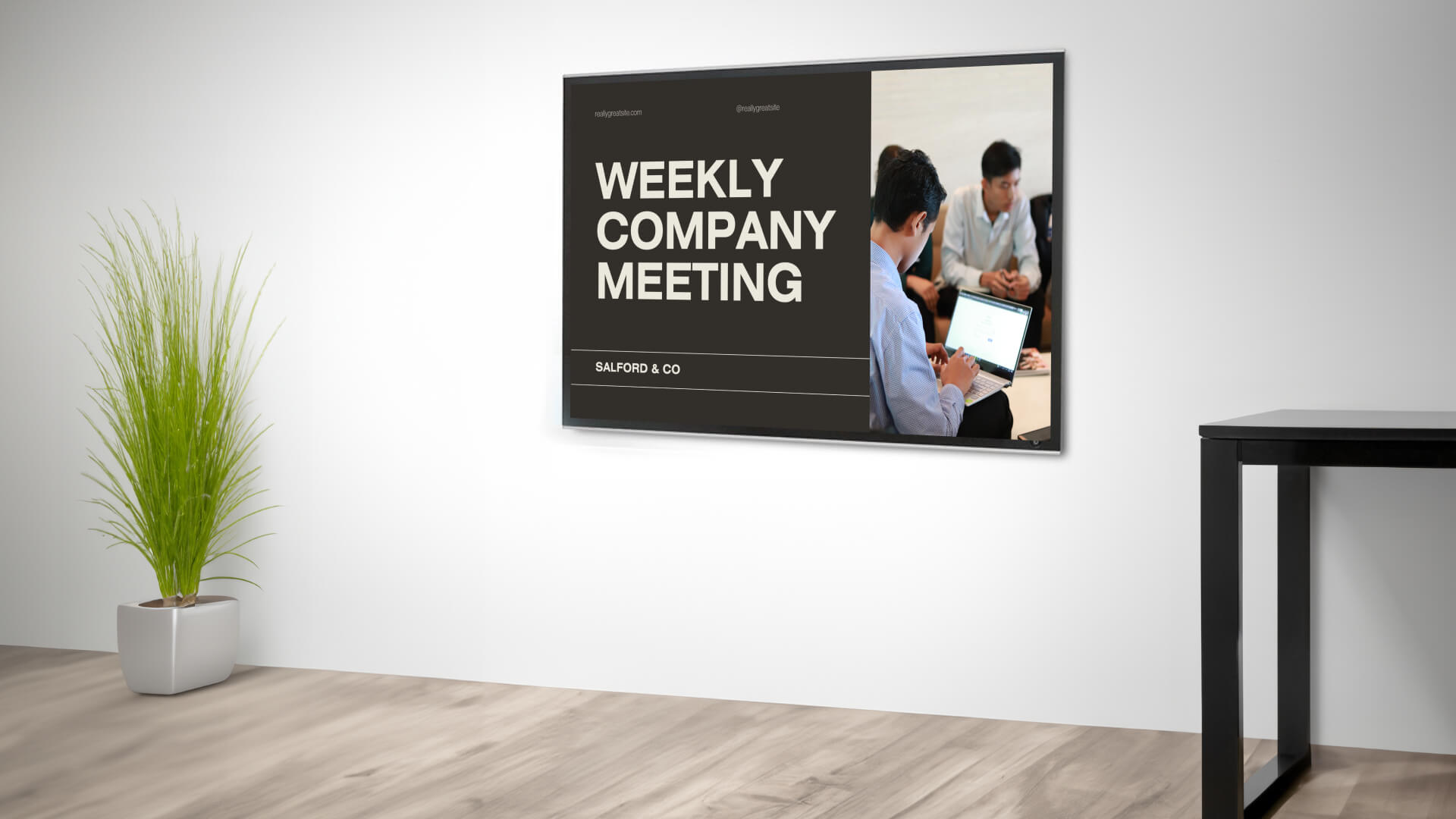
Signage must convey information swiftly and clearly. This means choosing legible fonts, appropriate sizes, and contrasting colors. For instance, sans-serif fonts can significantly improve the readability of wayfinding signs, facilitating quicker comprehension.
Your signage is a powerful branding tool. Consistently applying your brand’s visual elements—colors, fonts, logos—across all signage strengthens brand recognition and fosters a unified workplace environment. This includes the tone of voice in the signage content, which should be in harmony with your brand’s communication strategy.
Digital signage offers dynamic content possibilities, from displaying the latest company updates to integrating real-time data and social feeds. This keeps content fresh and engaging and allows for immediate updates and announcements.
Try For FreeDesigning accessible signage ensures inclusivity, accommodating all users, including those with disabilities. Considerations include Braille for visually impaired individuals, audible cues for wayfinding, and positioning signs within easy reach for everyone.
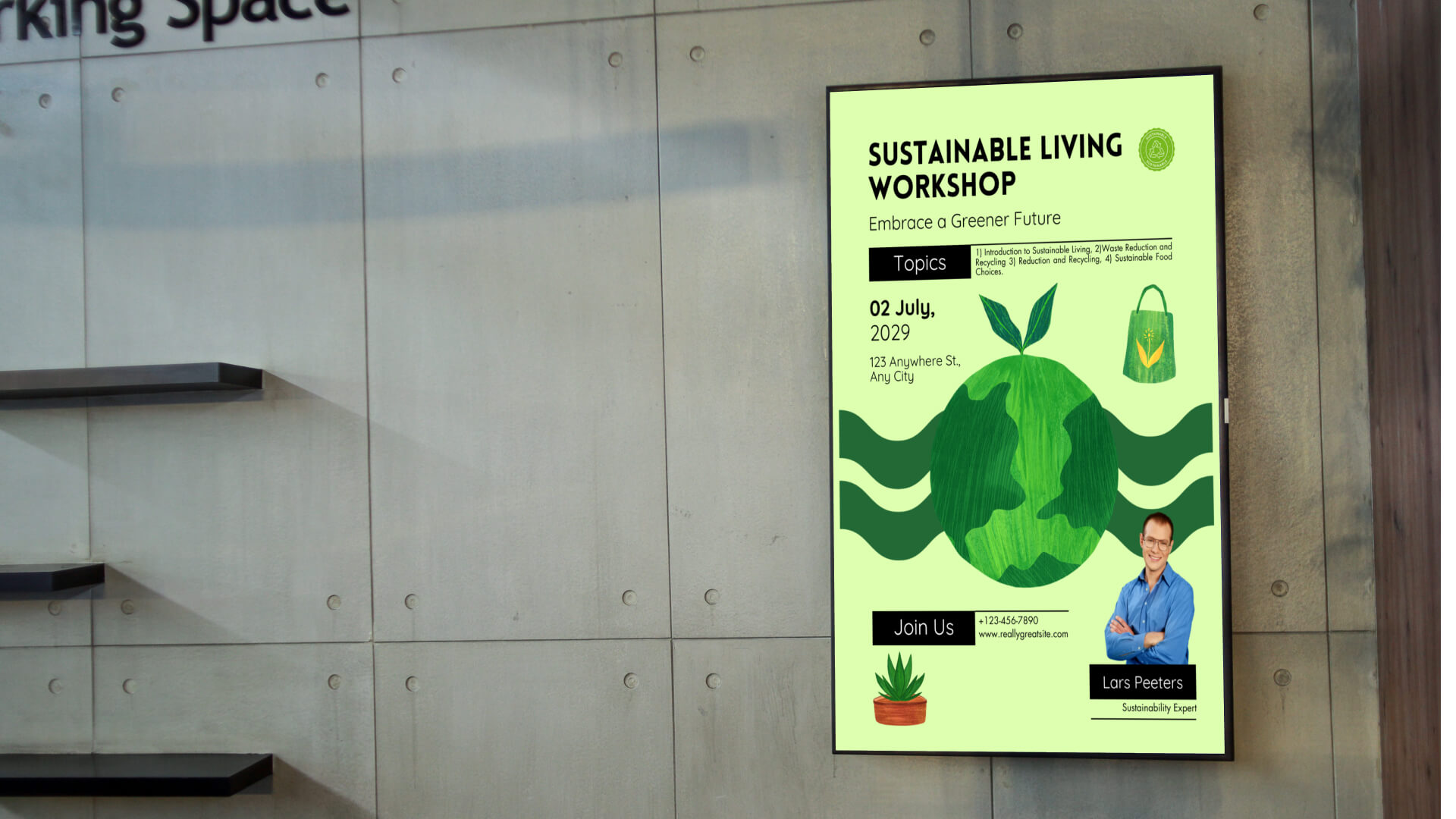
Employing sustainable materials and methods in signage design demonstrates environmental responsibility and enhances your company’s image. Sustainable practices include using LED lighting and recycled materials and opting for digital signs to minimize waste.
A well-planned digital wayfinding system is vital for guiding individuals smoothly through your space. Use strategically placed signs, landmarks, and color-coded paths to intuitively direct traffic, minimizing confusion and enhancing the user experience.
Ensuring your signage complies with laws and regulations, including the Americans with Disabilities Act (ADA) and local safety codes, is non-negotiable. Compliance not only avoids legal issues but also ensures safety and accessibility for everyone.
Interactive signage, like touchscreens and QR codes, provides a modern and engaging way for users to navigate and access information. This technology can significantly enhance the visitor experience by offering customizable interactions.
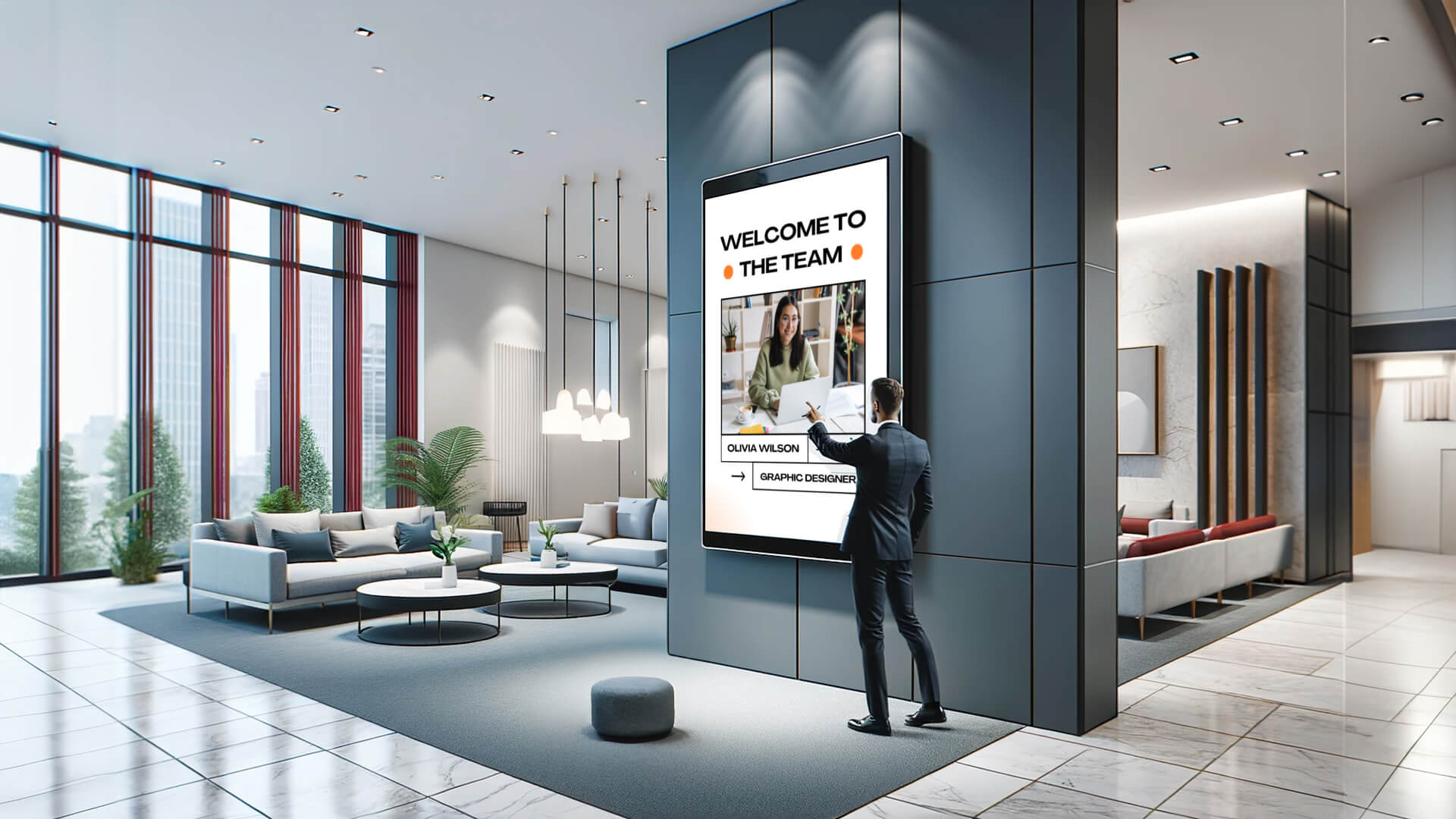
Display welcome messages for new employees on their first day at work. This will make the entire team aware of their joining and make help them familiarise with colleagues.
Signage that clearly indicates emergency exits, safety equipment locations, and instructions is essential. These signs must be highly visible and placed strategically to ensure all building occupants’ well-being.
In today’s global workplace, it’s important to consider cultural nuances in your signage design. This may involve including multiple languages or being mindful of color symbolism, ensuring that your signage is respectful and inclusive of diverse cultures.
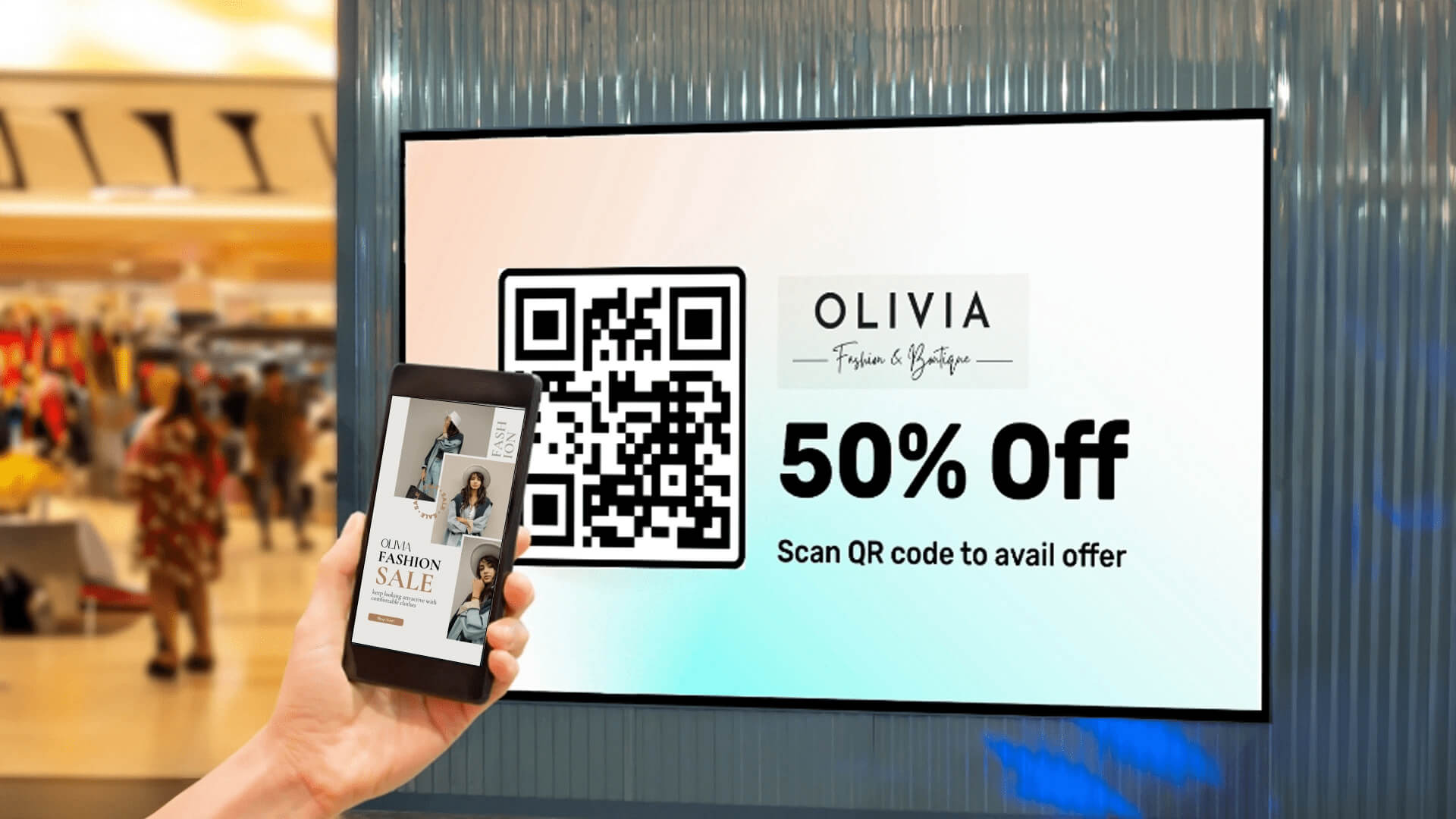
Anticipating future changes and designing signage with adaptability in mind can save resources over time. Beacon signage systems, for example, allow for easy updates and interactions, adapting to your organization’s evolving needs with minimal disruption.
Designing effective office signage requires a thoughtful blend of aesthetic appeal, functionality, and strategic planning. This helps businesses create a signage system that supports their branding and operational needs and promotes an inclusive, engaging, and efficient workplace environment. The goal is to create ideas that is not only visually appealing but also functional, ensuring a seamless and positive experience for all who interact with your space.

Nov 20 2024
8 min read

Sep 11 2024
7 min read
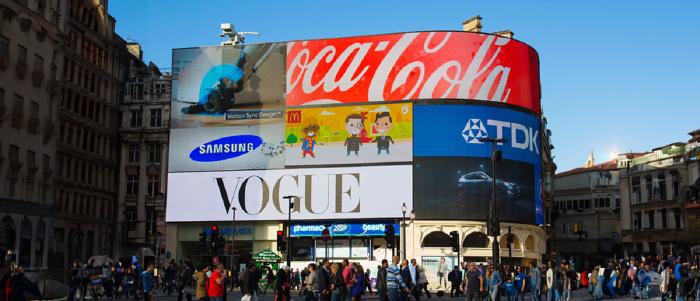
Jan 17 2024
4 min read
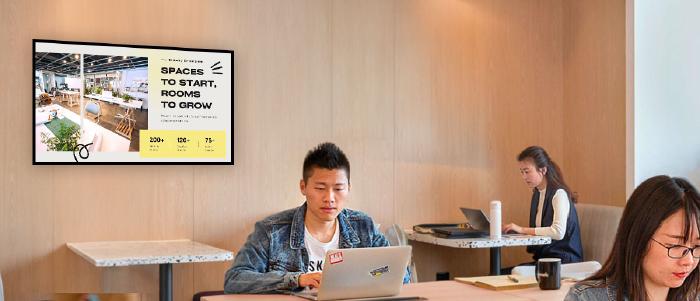
Dec 8 2023
8 min read
Take complete control of what you show on your digital signage & how you show it.
Start Free Trial Schedule My Demo